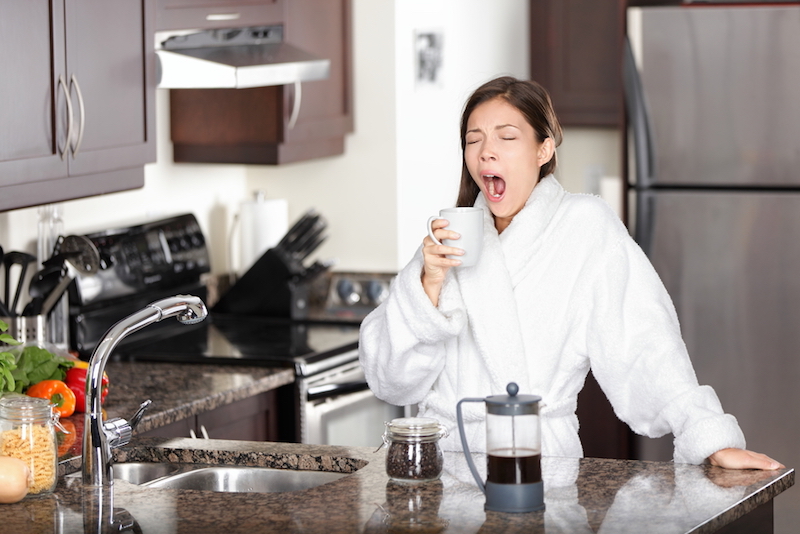Caffeine's 'Boost' Disappears When You're Extremely Sleep-Deprived

People who don't get enough sleep for several days in a row can't rely on caffeine to give them a mental boost, new research finds.
Researchers looked at 48 people who got only 5 hours a sleep a night, for five days in a row. Twice a day, participants took either a placebo, or 200 milligrams of caffeine, which is about the amount of caffeine in a big cup of coffee. The study was double-blinded, meaning neither the researchers nor the participants knew who got the caffeine or who got the placebo.
After three nights, the participants' alertness and their performance on a series of tests both fell, even after they'd had caffeine, the researchers found. [10 Interesting Facts About Caffeine]
"These results are important, because caffeine is a stimulant widely used to counteract performance decline following periods of restricted sleep," the lead author of the study, Tracy Jill Doty, a behavioral biology scientist at Walter Reed Army Institute of Research in Silver Spring, Maryland, said in a statement. "The data from this study suggests that the same effective daily dose of caffeine is not sufficient to prevent performance decline over multiple days of restricted sleep."
The results are among the first of their kind, Doty told Live Science. There is little research on how caffeine affects people who chronically get too little sleep, she said.
"This is particularly important information for the military, where war fighters may have restricted sleep and may also be using caffeine," she said.
In the study, the participants spent the week sleeping at the lab, and took either the placebo or caffeine at 8 a.m., and again at 12 p.m., each day. Then they took a series of tests related to mood, sleepiness, wakefulness and reaction time, Doty said. They also took cognitive tests hourly when they were awake.
Sign up for the Live Science daily newsletter now
Get the world’s most fascinating discoveries delivered straight to your inbox.
Results showed that the caffeinated group had faster reaction times during the first two days compared with the placebo group, but not on the last three days of the experiment, Doty said. Moreover, the people who took caffeine reported feeling happier than those who took the placebo only on the first few days of the experiment.
"Over the final days of sleep restriction, those in the caffeine group rated themselves more annoyed than those in the placebo group," the researchers wrote in the study.
Doty called the findings "important," as they suggest that "the same amount of caffeine may not be effective in helping preserve performance under sleep loss."
However, the study didn't take into account that sleep-deprived individuals might increase their caffeine intake over time, Doty said.
"We do not know what would occur if more caffeine was taken," she said. "Increased caffeine dosage will increase negative side effects such as jitteriness, but we do not currently know if an increased dosage would prevent performance decline."
The unpublished study was presented Tuesday (June 14) at Sleep 2016, a meeting of the Associated Professional Sleep Societies, in Denver.
Original article on Live Science.

Laura is the archaeology and Life's Little Mysteries editor at Live Science. She also reports on general science, including paleontology. Her work has appeared in The New York Times, Scholastic, Popular Science and Spectrum, a site on autism research. She has won multiple awards from the Society of Professional Journalists and the Washington Newspaper Publishers Association for her reporting at a weekly newspaper near Seattle. Laura holds a bachelor's degree in English literature and psychology from Washington University in St. Louis and a master's degree in science writing from NYU.









